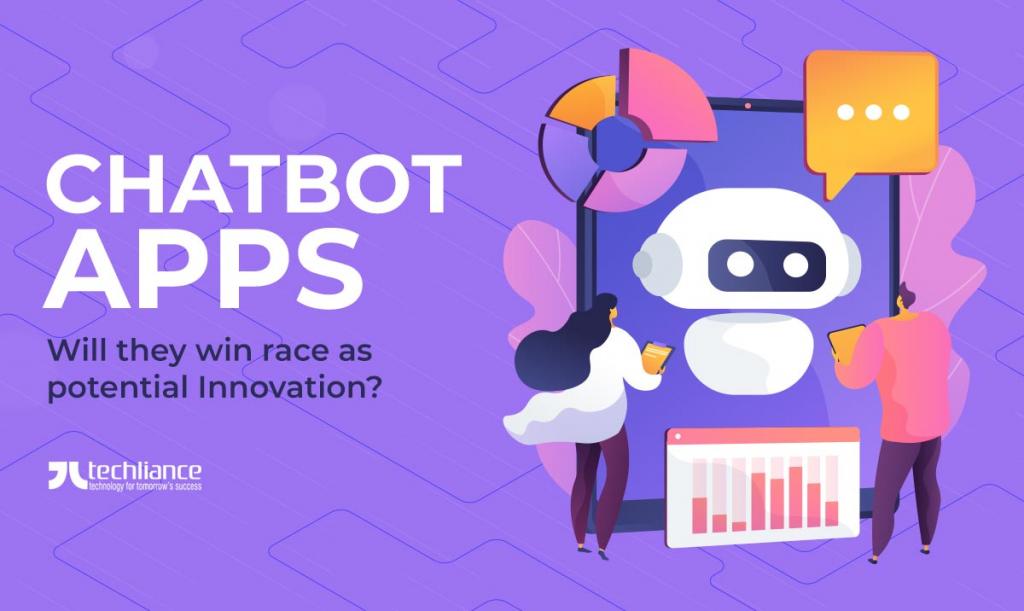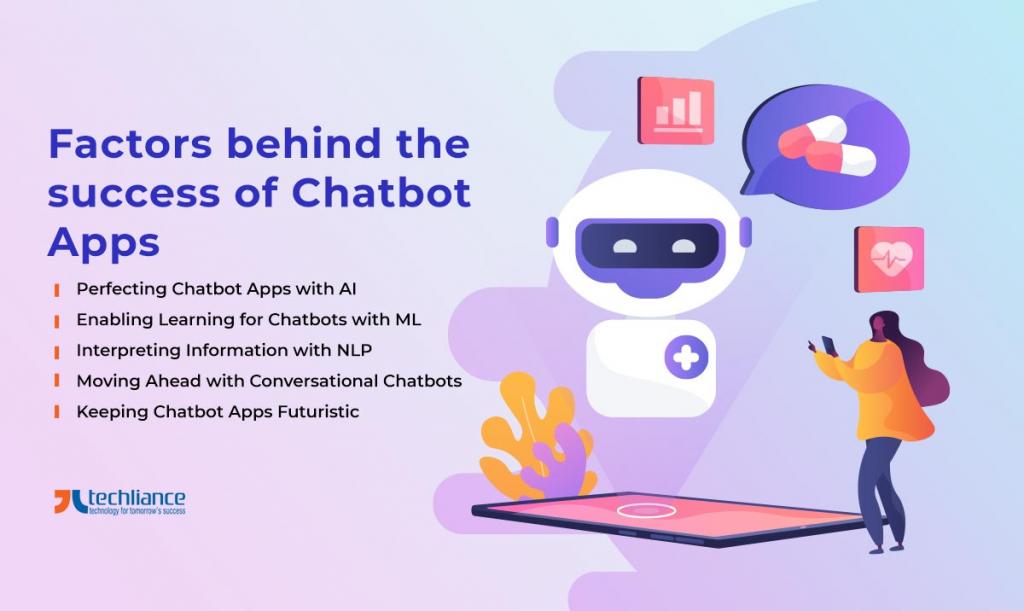Around the world COVID-19 pandemic has forced major aspects of our everyday lives online. Talking of 2024, customers’ expectations from online products and services have substantially increased over time. Thankfully, chatbot apps powered by AI and machine learning have come to the rescue of online businesses.
Time has ever been a valuable commodity. But it has become more worthwhile and priceless than before. Because people are struggling to balance work, family, and several other obligations – all from their homes.
Customers to online stores expect them to value their time more. They want online brands to make every effort to ensure an easy engagement and problem redressal. Equally important is the case with people and businesses seeking services online.
As a computer program imitating a human, the chatbot can simulate a smart conversation with users through a conversational interface. Chatbots or virtual assistants like Siri, Alexa, Google Assistant, and Meena have already gained widespread popularity. Currently, several chatbots are available for use in fields like finance, banking, and business to handle client queries.
Chatbot companies are helping produce intelligent technology that can help organizations in resolving the customers’ problems. Dedicated programmers can build specialized chatbots that provide quick solutions to common live chat needs. These personalized chatbot apps can more proactively engage your target audience.

Factors behind the success of Chatbot Apps
The chatbot apps are designed to answer a narrow range of questions. But using machine learning and AI, they can expand their knowledgebase with time. You can even create a custom chatbot to solve the special requirements of your users.
In essence, chatbots are an advanced form of live chat and are using smart technology. It makes them able to learn and adapt according to the customer preferences. Thus, they can anticipate customer needs and provide a significantly more personalized experience.
Accordingly, chatbot apps are changing the way online businesses work globally. More and more online storefronts are turning to chatbot apps. True to its title of world technology leader, the United States is a pioneer and frontrunner in using chatbots.
These are the features that are making chatbot apps successful during 2024.
- Perfecting Chatbot Apps with AI
- Enabling Learning for Chatbots with ML
- Interpreting Information with NLP
- Moving Ahead with Conversational Chatbots
- Keeping Chatbot Apps Futuristic
Let’s discuss these aspects playing role in the high demand for chatbot apps in detail now.
Perfecting Chatbot Apps with AI
Artificial intelligence is a concept whereby a computer system can perform tasks that normally require human intelligence and skills. These tasks include visual perception, decision making in a tricky situation, speech recognition, and even translation between various languages. AI plays an important role for chatbot makers by extending a human touch to every conversation that chatbots strike.
Gratefully, artificial intelligence is offering a unique ability for chatbots to understand a query. Therefore, chatbot apps smartly generate an accurate response. AI is using two components to do this.
Enabling Learning for Chatbots with ML
Machine learning is an algorithm that enables chatbot apps to pick up information and learn from user queries. ML also uses data provided by the chatbot developers during the training of chatbots.
As any query is entered, ML guides the chatbot to go through similar past conversations that it had with users. Thanks to machine learning, chatbot apps produce a response based on the previous information.

Interpreting Information with NLP
Natural language processing (NLP) is a technology that assists chatbots in understanding, assimilating, and interpretation of the provided information. With the help of NLP, chatbot apps comprehend the various intents with which any user types a query.
Nowadays, chatbots are trained to streamline their response with the situation and the user intent. Subsequently, they provide an appropriate as well as an empathetic response to users.
Understanding the language of the query is one element for perfecting any chatbot. Similarly, the other most important part is empathy. Chatbot builders are trying to inject emotional intelligence into chatbot-based communication. The aim is to enable chatbot apps to very closely emulating a natural human interaction.
Moving Ahead with Conversational Chatbots
Conversational AI is a set of technologies that support chatbots in comprehending data and engaging in effective human interactions. These communications can either be spoken or written. Chatbot software is now programmed to identify keywords that convey more than just statistics.
These keywords offer information about deeper insights into users’ intent and moods. Moreover, chatbots can recognize behavioral patterns and user preferences. Thus, chatbot coders can tailor their solutions according to the customers’ needs.
Chatbots driven by AI are more capable of answering complex queries – while keeping the conversation naturally engaging, informative, and lively. Chatbot apps assess every previous conversation before answering any new user query. So, their responses improve and become efficient gradually.
At the same time, it becomes an excellent source for collecting valuable customer data about choices and preferences as well. Smart interactions have been able to save customer’s time by allowing them to access correct information. Hence, chatbot apps address their queries in a simple and timely manner. In return, it is helping companies improve their customer retention rate and satisfaction quotient.
The important thing to note is that you need to train chatbot software using enough data. So that they can strike meaningful conversations that appear natural and not robotic. AI is the technology that is enabling this feature. Without artificial intelligence, chatbot apps are simply FAQ reading bots literally.
Chatbots were initially designed to handle repetitive and mundane aspects of any business. For example, responding to customer queries, solving client complaints, and getting user feedback, etc.
With the addition of AI, the scope of chatbot apps has expanded to include a lot of other things also. For instance, other use cases include customer support, user navigation, content delivery, product recommendations, discount offers, etc.
Keeping Chatbot Apps Futuristic
Chatbot businesses are striving to develop the most competitive technologies for consumers and enterprises internationally. Corporations in developed countries are employing chatbot apps, and are cutting costs on customer service executives. By 2022, chatbots are forecast to dominate the customer support industry and generate countless data for companies to work upon.
The revenues will shoot up significantly with the help of this data amassed. As it will guide better decisions, products, and services that are tailored to customer preferences. The banking sector is one of the prime sectors that is sure to benefit from chatbot technology.
Personalized services and products are becoming more and more mainstream. So, chatbot apps will contribute to the modernization processes of various companies. It will also affect the marketing sector – prompting customers to choose chatbot features that are specially made for their benefit.

Conclusion
Chatbots have advanced on many fronts. But they are still far from realizing their full potential. They are attracting billions of dollars in annual investments and significant human capital investments worldwide. So, chatbot apps are sure to create future value in both corporate and consumer settings in the USA and globally.
Are you on the lookout for integrating chatbot or live chat in your online business? You can modernize your online support initiative with the latest industry trends. Connect with Techliance to transform your customer support and service desk into an innovative virtual helpdesk.




